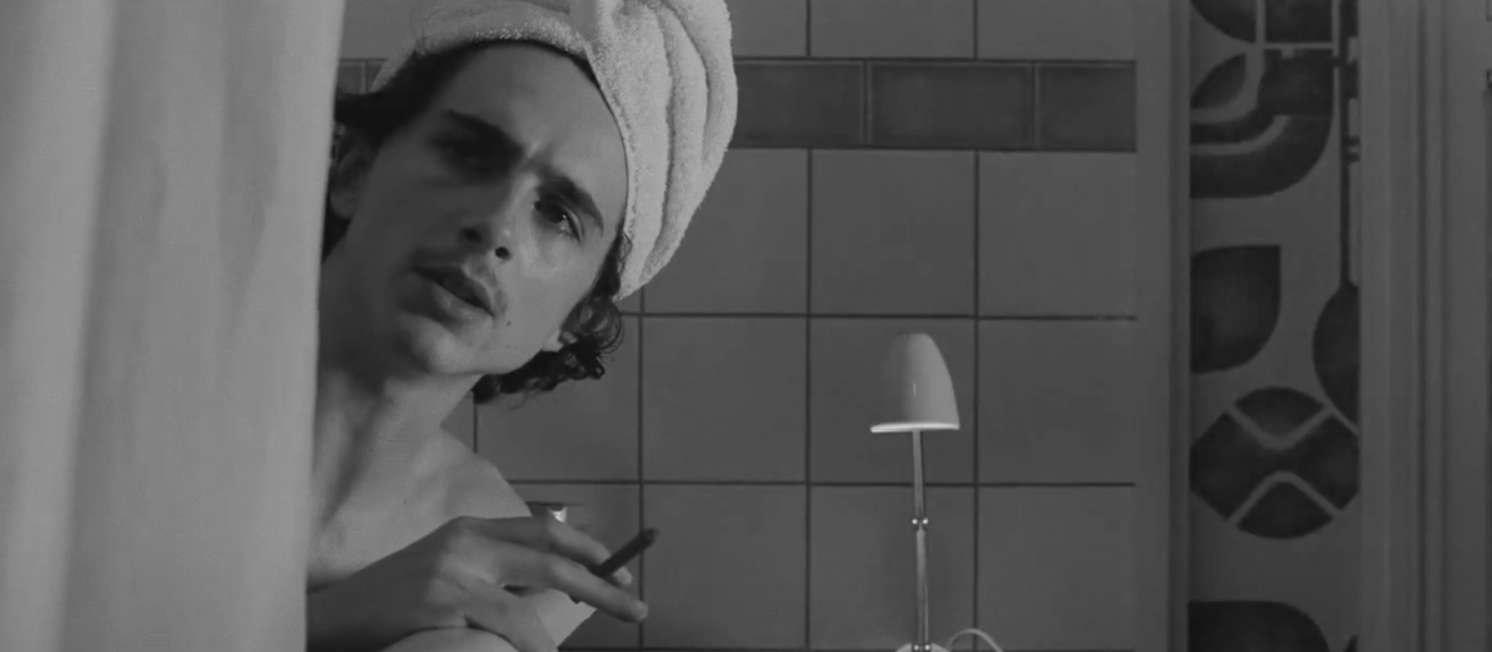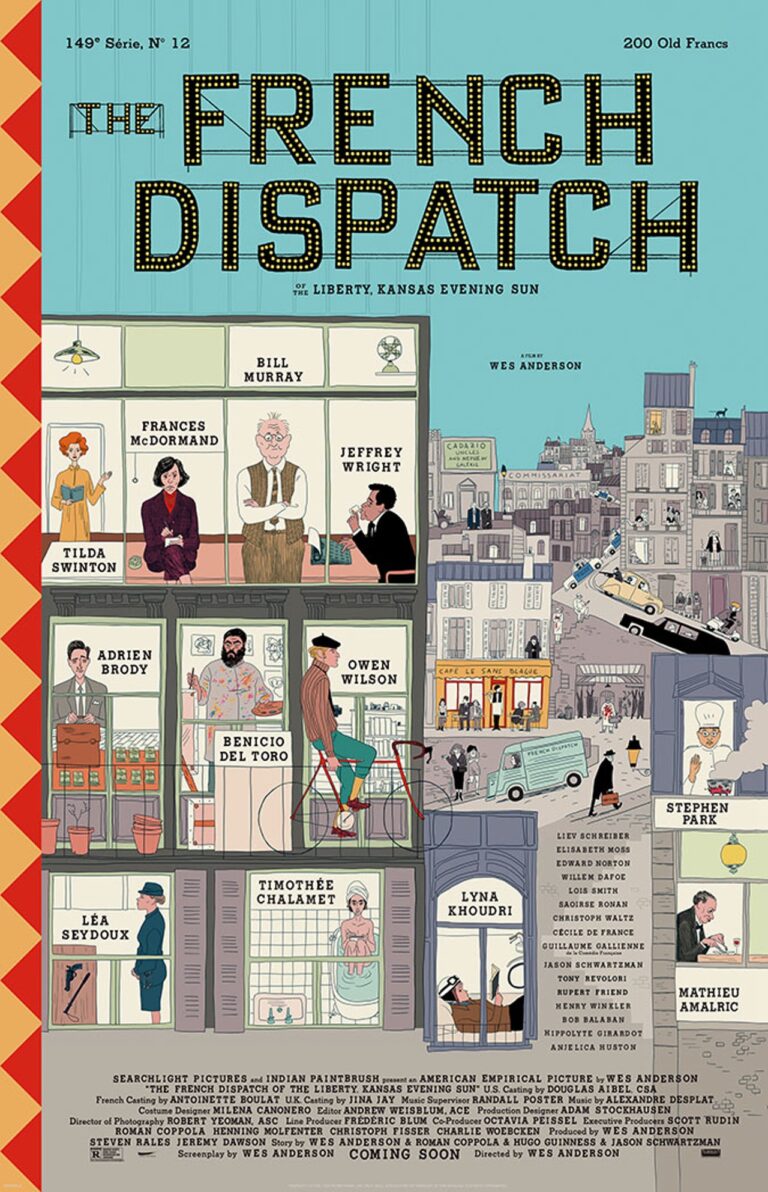

“It was an accident, your honor. I didn’t intend to kill anybody.”
“You decapitated two bartenders with a meat saw…”
The French Dispatch finds Wes Anderson in an ouroboric mode, essentially preoccupied with putting together a film that totally fulfills the ossified aesthetic ambitions that he’s spent the last quarter century fussily working out. It has a slight air of absurdity and a dose of melancholy, and reads like a pop-up storybook.
Formalist, alienating, and utterly self-aware, the film conveys a triptych of stories from an early issue of a long-running American periodical published out of a quaint French town. The occasion for reminiscing about the halcyon days is the death of the magazine’s curmudgeonly editor (Bill Murray), whose will states that The French Dispatch is to die with him. (I may be mistaken; at other times it seemed like the stories were arranged as if they constituted the final issue, which the editor was working on at the time of his death.) The first one’s about an incarcerated painter (Benicio del Toro) who may be the next great underground genius in the world of modern art, his prison guard muse (Léa Seydoux), and the art broker who discovers him (Adrien Brody). The second is about student revolutionaries (Timothée Chalamet, Lyna Khoudri) who struggle to author a manifesto and get tangled up with a journalist (Frances McDormand) covering their plight. The third concerns a clever resolution to a kidnapping situation, recounted on a talk show by a food journalist (Jeffrey Wright).
Each of these stories is haphazardly layered, so that we witness the events, the reporting, the writing, the editing, the publishing, and so on in one breathless hurtle. This is dressed up with are footnotes, flashbacks, sidebars, slideshows, freeze frames, black-and-white, animation, title cards, split-screen, subtitles. The film is also stuffed with Anderson regulars (names I haven’t mentioned yet: Owen Wilson, Tilda Swinton, Bob Balaban, Willem Dafoe, Edward Norton, Saoirse Ronan, Jason Schwartzman, Anjelica Huston) and a few notable newcomers (Henry Winkler, Christoph Waltz, Elizabeth Moss).
Surely there ought to be a double standard for this sort of predicament.
While the expected quirks and whimsies provide a pleasant diversion, none of these stories have any dramatic stakes at all. They’re entirely driven by posture and aesthetics. Sure, take any minute or two in isolation and you’ll find a charming bit of pastiche with every element meticulously designed and controlled, from the color to the framing to the soundtrack to the performances. It’s all scrumptious stuff, but that’s the problem. After a mere handful of these twee moments all stacked together—no matter that they’re expertly arranged—the sweetness no longer strikes the palate in quite the same way. All of these stylistic references to Tati or Truffaut or Godard or Ophüls and whoever else add up to nothing in particular. There’s no emotion that’s not held at an ironic distance, no connection to anything that’s living and breathing. And yet there’s nearly two hours of the stuff. Who wants to watch a pop culture, francophile version of mid-century France with every ounce of flesh and blood obliterated by the human puppet show? Rhetorical, obviously, and Anderson even acknowledges his lack of humanity by naming his fictional setting Ennui-sur-Blasé (“boredom-on-jaded”) and putting a “no crying” sign in the magazine’s main office.
As the eccentric, expat journalists in the film can often be seen frowning in concentration as they work through the creative process of writing a story, so The French Dispatch seems consumed with its own construction. It scans on first viewing as excruciatingly mechanical and self-conscious in its arrangement and manipulation of its images. Taken as an artistic expression of the idea that aesthetics must be embedded in some sort of unifying structure and that each of us has a unique perspective and authorial voice, it is easy to appreciate, but extremely difficult, perhaps even impossible, to earnestly embrace.